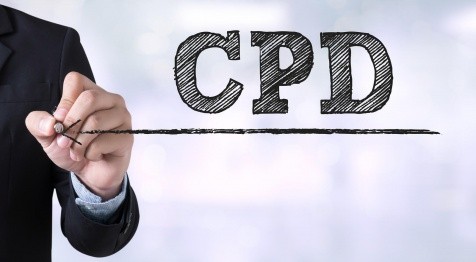Overcoming Barriers to Sales Improvement
A good football manager wouldn’t dream of putting his players on the pitch without continued training and coaching. Likewise, you don’t want to send your salespeople out unless they are fully equipped and motivated.
Yet you may work for a management team that still doesn’t recognise the benefits and importance of investing in employee training.
Some sales leaders behave like ostriches with their heads stuck firmly in the sand, convinced that training is an unnecessary expense. Others know they should be training their sales team, but always put it off, coming up with excuse after excuse.
What follows are some of the most common barriers to training a sales team and how you can overcome them.
Barriers to investing in sales training:
“Training is expensive”

In recent research carried out by The CBI, 52% of companies complained that lack of funds was the biggest barrier to providing more training. Yes the best trainers and providers will command high fees, but they do so because they are experts who get results.
In any case, training is not a cost. It is an investment.
Yes, it can be tough to forcast an exact return on investment (“how many extra products and services will we sell because of training?”), but with sales being the revenue-generating engine of a company, training is fundamental to building a high-performance sales team.
And what some managers don’t realise is that there can be a huge cost in not providing training.
Untrained salespeople are unhappy salespeople who can feel inadequate and ill-equipped to deal with the challenges of their position. They’ll feel miserable, unsupported and consequently they’ll underperform. Eventually, they’ll leave in search of a company that will allow them to reach their potential.
That company could be your competitor.
Either way, you must run the expense of hiring a new employee.
These days, effective training is not about sending salespeople on the cheapest generic course you can find hoping they’ll come back with a few nuggets of information.
It’s about providing tailored coaching material to each individual that will allow them to work smarter and increase their productivity.
“Training takes up a lot of time”

According to the research from The CBI, 49% of the surveyed companies gave this as a reason for not offering more training.
Sure, courses may take up three or four days of an employee’s time, and their time is expensive. But when company directors say they cannot afford to let their employees take time out of their schedules it is because they are viewing training as an expense and not as an investment.
In other words, it’s the same reasoning as the cost excuse.
If a salesperson took two days out of every five for training that would be hugely expensive, but two out of approximately 250 working days of the year is a drop in the ocean. And what they can bring back in terms of updated and newly acquired skills, techniques and approaches will more than pay back the time they took out of their normal routine.
Additionally, companies can easily make time for their sales teams to attend courses with effective time management. In many organisations countless hours are wasted on mindless tasks that are a drain on productivity.
“We’ve suffered from bad training experiences”

When you talk to some people who make training decisions they’ll tell you horror stories of tedious training sessions that went over the same old stuff and featured generic case studies and content. Or they’ll say that while the training was good, behaviours didn’t change and it was seen as a waste of time.
So, once bitten twice shy.
Yet if you burrow down into these anecdotes, quite often you’ll discover the reasons for sales training failure are altogether different. They include signing up to courses not customised to the needs of the company and their salespeople or that there was little or no reinforcement after the course.
The reason Natural Training has such a high retention rate with clients is because we tailor all our training to your company, culture and objectives. We build training as a sustained learning pathway aimed at reinforcing everything learnt in workshops.
“We don’t need training”

Yes, it’s true, some companies actually believe they don’t need any training!
Yet given today’s dynamic marketplaces with new products being introduced continually, the ever-changing needs of customers and the transformational changes brought on by new technologies, it is difficult to believe that lack of need is a reason for not investing in the continual training of employees.
Everyone needs training, from the apprentice to CEO. From Finance, to Marketing to Sales. Salespeople are skilled professionals and require CPD to stay at the top of their game.
Break Down the Barriers
When it comes to sales training, companies have clear choices. Either they continue to invest in generic courses, ignore training altogether or make a concerted and legitimate commitment to foster a continual learning environment and reap the benefits.
Companies prefer qualified candidates over non-qualified ones, but many salespeople are in danger of becoming underqualified over time if their training needs are ignored.
Providing management with clear reasons for effective coaching will help you to remove the many barriers to improved sales performance.
If you’re interested in a tailored training programme to transform your sales team, contact one of our Training Consultant’s today.
Got a comment?
Catch us on Social Media and join the discussion!

